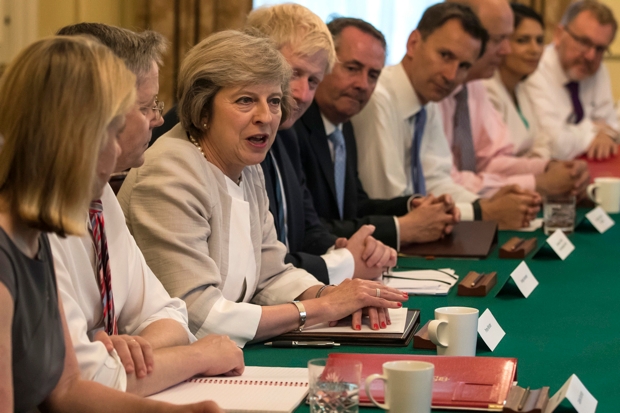What’s the most significant thing that Liam Fox has said today, as he begins talks with the US on a post-Brexit trade deal? Is it that he thinks the British media has an ‘obsession’ with chlorine-washed chicken (Ross takes a non-obsessive look at this here) or that he has admitted that it might be ‘optimistic’ to expect a trade deal between the UK and the EU by March 2019?
It is true that the International Trade Secretary has often been the most optimistic about how hard Brexit will be (unkind people might suggest that this is because he hasn’t actually had to do much of the nitty gritty stuff since taking the job a year ago), so his comments today at the American Enterprise Institute do represent a rather more pragmatic tone. He said:
‘There’s a growing consensus amongst the Cabinet that we will leave the European Union but we will have a transition and implementation phase where we’re outside European law but voluntarily would choose to keep a number of rules as part of the acquis to give our business in particular and our inward investors the ability to understand what the new environment is going to look like. Because it would be nice to think we could get a full free trade agreement by the time we get to March 2019, but that would be an optimistic view of recent trade agreements.’
Now, everyone is very busy either challenging the minister to eat a chlorine-washed chicken, or playing small trumpets of joy that he’s ‘admitted’ that certain aspects of Brexit might be a bit complicated. But what’s more interesting than this is that Fox is articulating the way the Cabinet is finally starting to coalesce around the idea of a phased exit from the European Union. This doesn’t mean that the Cabinet are now getting along so well that they’re all going to stay in the same Mediterranean villa for their summer holidays, happily playing ‘snap’ with all the things they agree about, but it does suggest that ministers have twigged that perhaps having at least three different positions on a transitional arrangement and whether it should even exist might make things harder for the government abroad and might undermine what authority it does have here too.
Of course, it’s not just the Cabinet that can make life difficult for Theresa May. She had called her snap election because she wanted an easier life in the Commons at least while negotiating Brexit, but now she cannot ignore even her backbenchers such as John Baron, who was the MP who forced David Cameron into promising this EU referendum in the first place. Baron today released a statement warning about a transitional period, saying ‘a transitional phase increases the risk the referendum result will not be properly honoured’:
‘The British people clearly voted to leave the EU in last year’s referendum, and it is imperative that both the Government and Parliament work to implement that democratic decision and engineer a clean and decisive break from the EU. Accordingly, there should be no loitering in the departure lounge.’
The Cabinet leadership jostling has calmed down a little for the time being. This is partly because the various ministers involved realised they’ve overreached themselves and annoyed their party. But the reaction of Baron and others to ministers actually starting to agree on something should serve as a warning to anyone plotting to take over from the Prime Minister: it will be impossible to keep everyone in the fragile Tory party happy over the next two years, and anyone who fancies doing that is a darn sight more optimistic about how easy the job will be than Liam Fox has ever been about his.







Comments